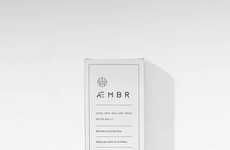
Birla Cellulose Designs a Sustainable Apparel Line with Ka-Sha
References: livabybirlacellulose & fibre2fashion
Textile repurposing company Birla Cellulose has recently formed a strategic alliance with the Pune-based fashion label Ka-Sha to create a new line of artisanal and sustainable products under the brand Roz. This collaboration encourages conscious consumer choices by aligning with everyday sustainability practices. The collection focuses on elevated basics that prioritize comfort, making them ideal for daily wear.
At the heart of this partnership is using the Reviva-M grade circular yarn blend. This innovative material combines cotton pre-consumer waste, Birla Cellulose's Birla Excel fibers, and indigenous kala cotton. Using these sustainable materials, Ka-Sha's skilled artisans can craft high-quality fabrics, which serve as the foundation for the Roz collection.
The new Roz collection can be explored through the Birla Cellulose website.
Image Credit: Birla Cellulose
At the heart of this partnership is using the Reviva-M grade circular yarn blend. This innovative material combines cotton pre-consumer waste, Birla Cellulose's Birla Excel fibers, and indigenous kala cotton. Using these sustainable materials, Ka-Sha's skilled artisans can craft high-quality fabrics, which serve as the foundation for the Roz collection.
The new Roz collection can be explored through the Birla Cellulose website.
Image Credit: Birla Cellulose
Trend Themes
1. Artisanal Sustainable Fashion - High-quality fabrics crafted by skilled artisans are emerging as key components in the eco-friendly fashion market.
2. Circular Yarn Innovation - The integration of pre-consumer waste and sustainable fibers into yarn production is revolutionizing the textile industry.
3. Comfort-centric Apparel - There is a growing demand for elevated basics that prioritize comfort, especially in sustainable daily wear.
Industry Implications
1. Textile Manufacturing - The incorporation of circular yarn and eco-friendly fibers is transforming sustainable textile manufacturing.
2. Fashion Design - Collaborations between textile companies and fashion labels are fostering the development of sustainable and artisanal fashion collections.
3. E-commerce - Online platforms are crucial for showcasing and distributing innovative eco-conscious apparel lines to a wider audience.
4.9
Score
Popularity
Activity
Freshness























